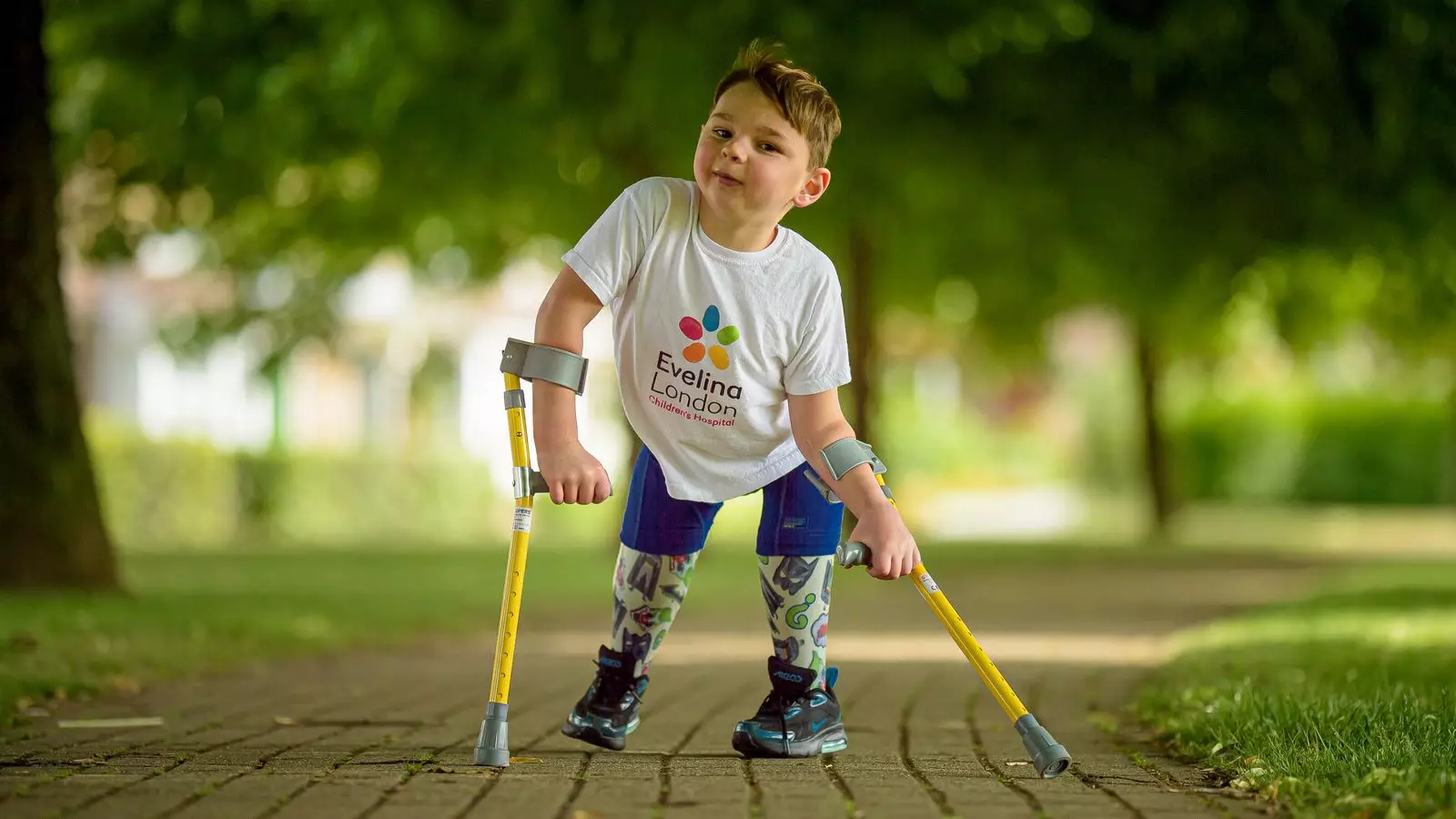The harrowing story of Tony Hudgell is one that resonates with anyone who has a heartbeat. At just 41 days old, this innocent child was the victim of unspeakable horrors, and now, as he navigates life with lifelong disabilities, news that his biological mother, Jody Simpson, is being released early from prison feels like a stab wound to the collective conscience. Simpson, alongside Anthony Smith, was sentenced to ten years for the barbaric torture that led to Tony undergoing amputations of both legs. This decision, driven by a parole board that claims to focus on rehabilitation over retribution, reeks of systemic failure.
The decision to release Simpson early underlines a troubling trend in our justice system: the prioritization of perceived rehabilitation over the long-term impact on victims and society at large. The Parole Board, despite its assurances, operates on a flawed foundation; it seems to hinge on the fantasy that a few years behind bars can erase a lifetime of trauma inflicted on a child. Tony’s painful journey, chronicled each day with the markers of his abuse, starkly contrasts with the leniency shown to his abusers. The oversight of the agency to acknowledge the profound anguish Tony endures reveals a troubling disconnect between the realities of victims and the impartiality often seen in judicial processes.
The Impact of Tony’s Trauma
Tony Hudgell’s story is not merely one of physical scars; it encapsulates an ecosystem of emotional and psychological turmoil. The narrative around his abuse serves as a clarion call, illuminating the sometimes-blind spots within our legal framework. The Parole Board insists that it examines the original crime and the behavior of inmates. However, the gross mismatch between this evaluation and the lasting effects on Tony’s life demands scrutiny. What is particularly maddening is the fact that the board’s focus largely ignores the voices of victims; it simply measures the numeric tick boxes of reform.
Arguably, Tony’s existence is a living testimony to the need for harsher sentences for child abusers. The pain he endures daily should serve as a grave reminder that some actions are irredeemable; they extinguish the very essence of a child’s future. The emotional toll on Tony’s adoptive mother, Paula Hudgell, mirrors the agony endured by her son. Her social media comments echo a narrative that vehemently opposes the simplistic narratives of rehabilitation. This is not merely a case of a mother’s misjudgment; it’s a tale of systemic failure that has allowed Jody Simpson the chance to re-enter society while a child still suffers the indescribable wounds caused by her hand.
Call to Arms: Tony’s Law and Societal Responsibility
The outcry for what has now become known as “Tony’s Law” illustrates a civic awakening to the issues surrounding child abuse. Tory MP Tom Tugendhat’s advocacy for this legal reform represents a burgeoning recognition of the need for a fundamental shift in how we treat child abusers within the justice system. The release of Jody Simpson raises numerous questions: What message does this convey about the severity of child abuse? How can we justify a system that allows perpetrators to regain their freedom while victims continue to suffer?
Critics assert that the very fabric of our society is at stake, as the criminal justice system struggles to balance leniency with justice. The comments from government officials acknowledging the horror of Tony’s situation juxtaposed with the parole decision amplify public outrage. This incongruence raises critical questions about the role of public sentiment in enacting change. As citizens, we have a moral responsibility—nay, an obligation—to fight for laws that prioritize the rights and safety of children. Allowing abusers to slip back into society fails to account for the lasting trauma their victims endure.
Finally, it’s clear that if we are to move toward creating a safer society, relentless advocacy for policies that ensure protections for those who are unable to defend themselves must prevail. We must confront the complications of human behavior with the unyielding resolve that defines our commitment to justice. The scars of child abuse are often hidden from a casual glance, but they are as real and searing as any physical injury—those who create them must face the consequences. Only then can we begin the arduous path toward repairing a broken system.


Leave a Reply